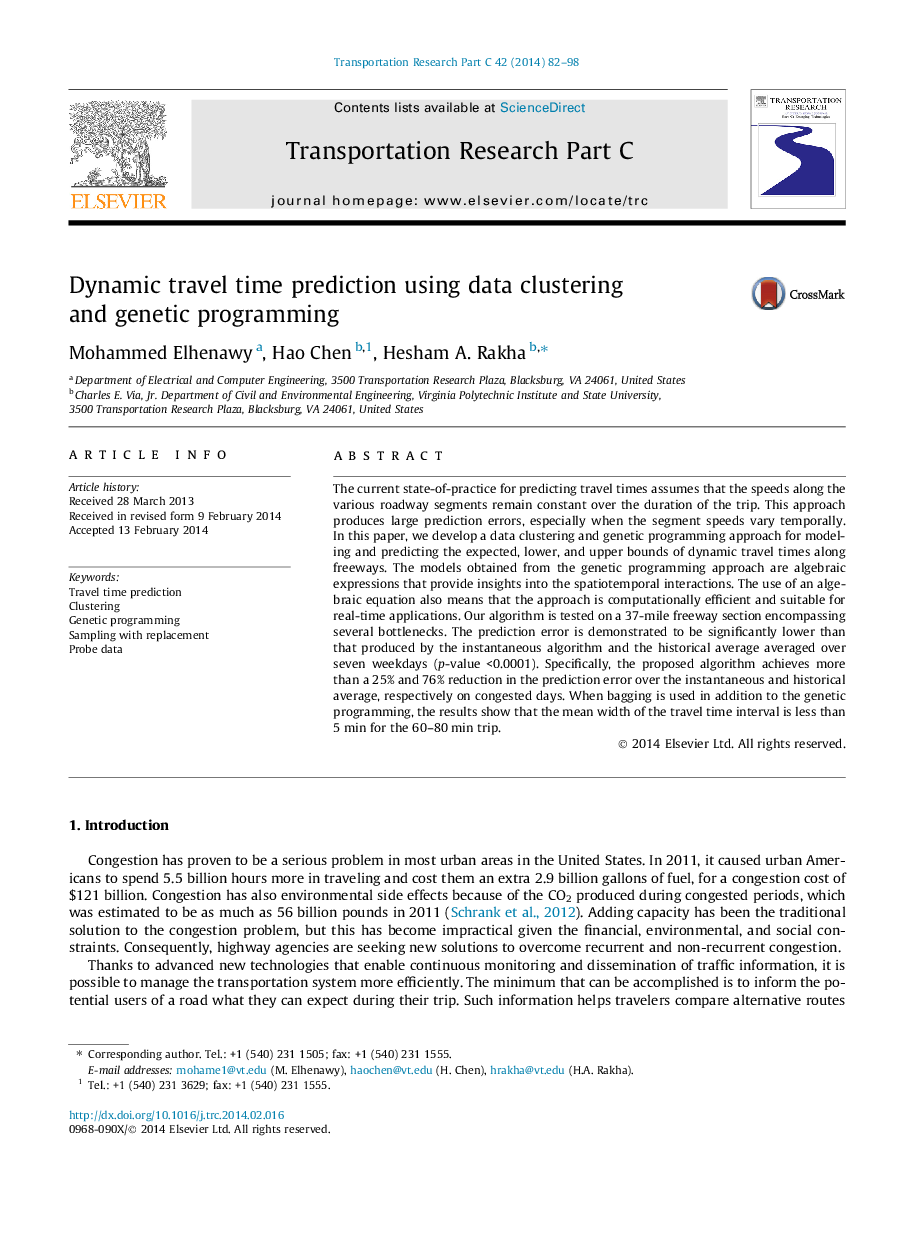| Article ID | Journal | Published Year | Pages | File Type |
|---|---|---|---|---|
| 525121 | Transportation Research Part C: Emerging Technologies | 2014 | 17 Pages |
•Developed a genetic program model for medium-term freeway travel time prediction.•The model identifies critical bottlenecks within the system.•The model outperforms state-of-the-practice travel time algorithms.
The current state-of-practice for predicting travel times assumes that the speeds along the various roadway segments remain constant over the duration of the trip. This approach produces large prediction errors, especially when the segment speeds vary temporally. In this paper, we develop a data clustering and genetic programming approach for modeling and predicting the expected, lower, and upper bounds of dynamic travel times along freeways. The models obtained from the genetic programming approach are algebraic expressions that provide insights into the spatiotemporal interactions. The use of an algebraic equation also means that the approach is computationally efficient and suitable for real-time applications. Our algorithm is tested on a 37-mile freeway section encompassing several bottlenecks. The prediction error is demonstrated to be significantly lower than that produced by the instantaneous algorithm and the historical average averaged over seven weekdays (p-value <0.0001). Specifically, the proposed algorithm achieves more than a 25% and 76% reduction in the prediction error over the instantaneous and historical average, respectively on congested days. When bagging is used in addition to the genetic programming, the results show that the mean width of the travel time interval is less than 5 min for the 60–80 min trip.
